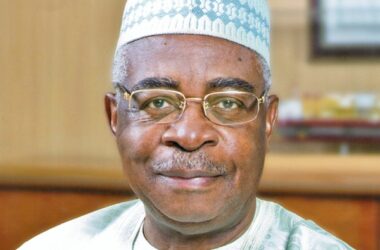The Economic and Financial Crimes Commission (EFCC) is set to monitor the implementation of financial autonomy for Nigeria’s Local Government Areas (LGAs), as direct disbursement of federal allocations to local councils is scheduled to begin in November 2024.
This shift, intended to grant greater operational independence to local governments, represents a significant change in how public funds will be managed at the grassroots level. The Supreme Court has mandated that allocations intended for the LGAs must bypass state government control and reach local government accounts directly.
The move towards autonomy follows a long-standing legal and administrative battle. Earlier this year, the Federal Government, through the Attorney-General of the Federation and Minister of Justice, Lateef Fagbemi, initiated a lawsuit challenging state governors’ control over LGA funds.
The Supreme Court ruling on July 11, 2024, declared it unconstitutional for state governments to withhold funds allocated for local governments. According to the court, a direct payment system from the Federal Government to LGAs is now required, and any interference by state officials will be illegal.
To support the court’s directive, an inter-ministerial committee was formed in August, comprising finance and justice ministry leaders, the Accountant-General of the Federation, and other government representatives.
The committee’s objective has been to ensure that local governments attain full fiscal autonomy and manage their resources independently of state influence. The committee completed its work on October 13 and presented its recommendations to government officials.
EFCC Chairman Ola Olukoyede recently confirmed the agency’s commitment to ensuring that local government funds are utilized properly. He emphasized that any misuse of these funds will be met with prosecution, as the EFCC plans to closely monitor budgetary spending across the country’s 774 LGAs.
Olukoyede said, “The wisdom of the Attorney General and Minister of Justice, Prince Lateef Fagbemi (SAN), in initiating the action cannot be faulted.
“Local government operations have largely been crippled in the country due to the overbearing influence of state governments.
“The charges recently filed by the commission against the former governor of Taraba State, Darius Ishaku, have to do with an alleged theft of billions of local government funds.
“So, local governments having direct access to their funds may improve developmental activities at the third tier of government and reduce rural poverty.
“We are fully prepared to ensure accountability in the use of local government funds. One of the reasons that informed the decision to establish additional zonal directorates by the commission is the need to improve the commission’s presence and coverage of the country.
“We’ll work closely with stakeholders in tracking the budget performance of the councils, to ensure that funds appropriated are used for specified purposes and those who violate the law will be brought to justice.”
The National Union of Local Government Employees (NULGE) President, Hakeem Ambali, reiterated that the shift to direct funding is expected by November. However, he voiced concerns that some state governments might still attempt to obstruct the autonomy process.
Ambali said, “On the issue of the allocation, we want to be very careful and ensure that everything is well put into place so that there won’t be any form of issues.
“We are aware that governors are also trying to have their way. See what is going on in Abia state for instance.
“So, we don’t want any loophole at all. We believe that by November, the whole thing will come into full effect.”
He further stated that the Ministry of Budget and National Planning has organized a stakeholder meeting to facilitate the smooth implementation of the policy.
“Last week, we, the stakeholders, had technical sessions with the minister of budget and national planning from Monday to Wednesday. o we are very sure that by November, the whole thing will be implemented,” he noted.
Local government associations, including the Association of Local Governments in Nigeria (ALGON), have expressed support for the change, stating that it could accelerate development at the grassroots level and reduce poverty in rural areas. ALGON officials confirmed that work is ongoing to ensure the funds are disbursed as planned by the end of October, following a three-month delay requested by state governments to allow for adjustments.










